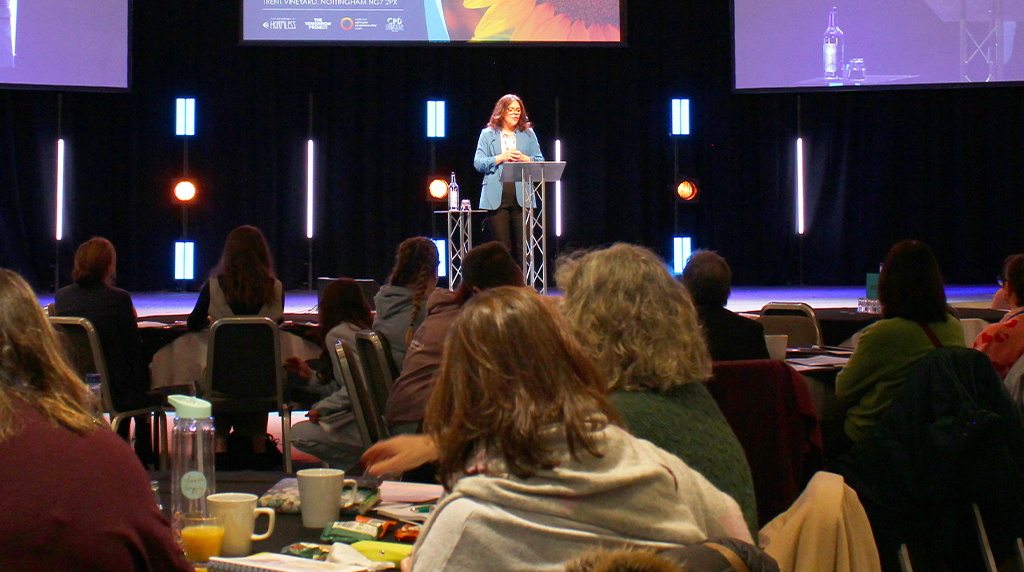By Megan Dooley (Training & Education Officer)
At the Academy at Harmless, we deliver suicide bereavement training. It’s a session that covers the emotional and physical symptoms of grief, the impact of stigma on those left behind, and how to provide effective emotional and practical support to anyone impacted after a loss through suicide.
It’s a unique session, and it always has a different vibe from our other courses. Delegates that attend tend to be a little more reserved and sheepish, especially at the beginning. It’s understandable. It’s a particularly tough topic to openly address, regardless of whether you have personally lost someone to suicide or not.
In my most recent session, I had a small group of five delegates. Everyone had their cameras on, which is always a plus as a trainer. It makes delivering so much easier when you can see faces and get that visual feedback; nods, smiles, or the cue to slow down when you see people writing notes or looking confused.
This group was very quiet for the first half an hour. It took a lot of coaxing to get them to share their thoughts. More than once, I found myself worrying that they weren’t engaged and that I needed to up my delivery game. Finding the right balance between speaking and silence, information and interactivity, is key.
Slowly but surely, as the session progressed, the group started to warm up. They shared thoughts through the chat box and over the mic, and I found myself relaxing into it too. We looked at how grief can present, discussed how grief from suicide loss can be different, and considered how the stigma can lead to the bereaved being socially isolated.
In our line of work, we talk a lot about how normalising conversations about suicide and mental health is key to breaking down stigma. Talking shares knowledge. It gives people permission to open up when they are struggling themselves.
We often see this demonstrated through delegate disclosures. The training itself normalises the conversation. By talking openly, we show delegates that this is a safe space to share thoughts. It’s common for someone to share a personal story or want a brief chat after the session.
This session was no different. At the end of the training, one of the delegates hung back to talk. This person had been particularly quiet during the session, and I had been concerned they weren’t finding it helpful. They revealed that they had experienced a loss in the family through suicide some years prior and had not yet received any formal support.
They told me that the training had been really insightful. They saw their own experience in what we had covered and felt motivated to explore postvention support for themselves and their other family members.
That delegate’s experience is the perfect example of why breaking the silence is not just a concept, it’s a lifeline. It’s about creating a space safe enough for someone to feel seen.
On this International Survivors of Suicide Loss Day, and every day, remember this:
Postvention matters. Talking about suicide matters.
You never know when your willingness to have a difficult conversation will be the one thing that validates someone’s experience and gives them the courage to find support.
______________________________________________
If you or someone you know needs support, you can make a referral via the button below.

Conference Sponsorship Opportunities Still Available
On Friday 27th February 2026, Harmless will host the 11th National Self Harm & Suicide Prevention Conference – From Harm



